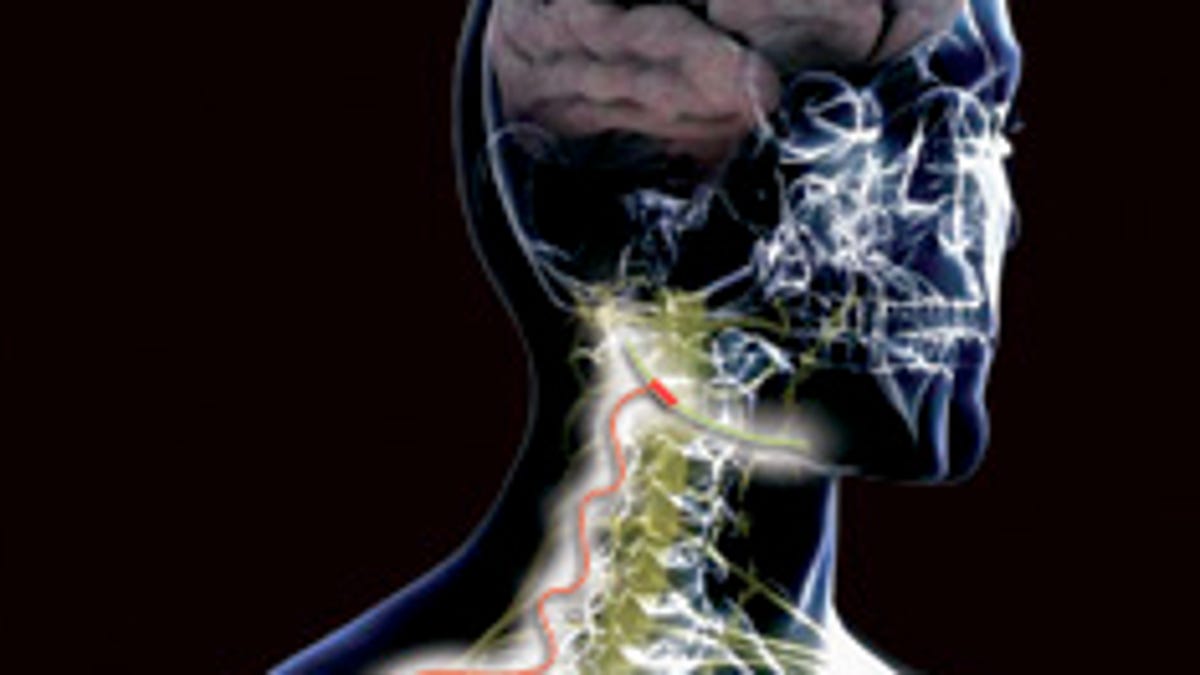Got sleep apnea? Stimulate your tongue
ImThera's new treatment for sleep apnea ditches the bulky masks of yore for a tiny neurostimulator surgically implanted near the tongue, currently being tested in Belgium.

If you're someone who's never had to deal with sleep apnea, as I am, it may come as a surprise to learn that the most effective--and frequently prescribed--device to treat the disorder, CPAP, is an enormous, unwieldy in-the-vein-of-a-bad-Halloween-costume mask that tends to find its way to such places as the closet, waste basket, or list of inventions to improve before you die.
So it is with great relief that I, even with my lack of sleep apnea, have been tipped off to a new technique currently being tested in Belgium that, if effective, could do wonders for those whose health can seriously suffer from sleep apnea.
ImThera, a privately funded start-up, has developed a tiny neurostimulator surgically implanted near the tongue that is programmed to essentially keep parts of the tongue awake enough to not block one's airway at rest.
Called Targeted Hypoglossal Neurostimulation (THN) Sleep Therapy, the technique consists of a small electrical device implanted under the skin near the lower jaw and along the Hypoglossal (12th cranial) nerve, then connected to a programmable implantable pulse generator (IPG) implanted near the surface of one's upper chest.
I know, it sounds like a lot of devices and pulses, but the group says surgery takes less than 45 minutes and heals fully in a matter of days.
Obstructive sleep apnea is often the result of obesity, but it is also considered a neurological disorder; those who do not suffer from it have tongues that can really multitask, resting while still stimulating the muscles that allow for an unobstructed airway.
THN Sleep Therapy uses a motor nerve technique called targeted stimulation, by which certain specific muscles in the human tongue are stimulated to open one's airway. The group's video has some handy diagrams, viewed in the video, right.
We'll report back when the results from Belgium come in, but at this early stage, THN is looking promising.

